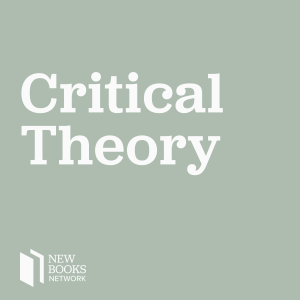
Robert Nichols, "Theft Is Property!: Dispossession and Critical Theory" (Duke UP, 2019)
 2020-06-15
2020-06-15
Download
Right click and do "save link as"
Robert Nichols, an associate professor of political theory at the University of Minnesota, has written an engaging and important examination of the clash between the western theoretical approaches to the idea of property and possession and the understanding of land property and possession held by indigenous peoples in a variety of societies settled by Anglophone colonizers. Theft Is Property!: Dispossession and Critical Theory (Duke University Press, 2019) pulls together or bridges intellectual traditions, bringing indigenous political thought into conversation with critical theory and Anglo social contract theory, centering on the different understandings of property, ownership, and possession.
Nichols weaves together a variety of different ways of thinking about the questions of property and possession, examining the language that is applied to the concept of property and how this also defines our understanding of possession and dispossession as well as the dichotomous ideas of property and theft. He also traces the early modern concepts of property and contract and the contemporary legal arguments that have been made to claim land and property from indigenous peoples. Folded into these discussions is a richly delineated argument that lays out the tension inherent in the idea of property, and how this idea was transformed within the context of the European intellectual tradition, and how critical theory subsequently problematized property and possession.
Theft is Property! explores the idea of recursive dispossession, which Nichols explains as the situation where “new proprietary relations are generated but under structural conditions that demand their simultaneous negation.” The exploration of this concept—through critical race theory, Marxism, and feminist theory—takes the reader on a journey focusing on the longstanding claims made by indigenous peoples in Australia, New Zealand, Canada, and the United States, and the counteractions and arguments made by Anglo-settler societies, which have generally left indigenous communities essentially dispossessed of both land and rights.
Lilly J. Goren is professor of political science at Carroll University in Waukesha, WI. She is co-editor of the award winning book, Women and the White House: Gender, Popular Culture, and Presidential Politics (University Press of Kentucky, 2012), as well as co-editor of Mad Men and Politics: Nostalgia and the Remaking of Modern America (Bloomsbury Academic, 2015).
Learn more about your ad choices. Visit megaphone.fm/adchoices
view more
More Episodes
012345678910111213141516171819
Create your
podcast in
minutes
- Full-featured podcast site
- Unlimited storage and bandwidth
- Comprehensive podcast stats
- Distribute to Apple Podcasts, Spotify, and more
- Make money with your podcast
It is Free
- Privacy Policy
- Cookie Policy
- Terms of Use
- Consent Preferences
- Copyright © 2015-2024 Podbean.com





